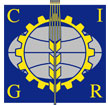Rural Development and the Preservation of Cultural Heritages Working Group
|
Chair: Prof. Pietro Picuno
School of Agricultural, Forest, food and Environmental Sciences, University of Basilicata. Campus... read-more
TEL: +39 0971 205437 E-mail: pietro.picuno@unibas.it |
Mission
Mission of the WG_RDPCH will be to consolidate, increase and exploit the role that Agricultural Engineering may play for the development of rural Society and its activities, in the framework of an enhanced preservation of cultural heritage and its related landscape in rural environment. Rural communities everywhere are indeed often susceptible to long slow declines, if agriculture is no longer economically viable and younger generations move to cities in search of better opportunities. Preserving a way of life and the identity of a community is more important than preserving only its physical form. Living, vibrant communities give meaning to their surroundings and create a sustainable environment for preserving culture. In this scenario, the role that would be played by Agricultural Engineers may reveal decisive for supporting the strategic technical and socio-economic development of rural areas, by proposing, testing and implementing new ways for the preservation and valorisation of their cultural heritage.
Objectives
The goal-oriented and measurable objectives for advancing the specific scientific area dealing with Rural Development and Preservation of Cultural Heritage (RDPCH) will be:
- an improvement in the number of academic courses dealing with RDPCH, targeted to University students, practitioners and other stakeholders;
- an increase in the number of scientific/technical publications produced by scientists working in the field of agricultural engineering, on topics relevant to RDPCH. A special attention will be focused on new opportunities, mostly based on the use of cutting-edge tools (ICT; IoT; etc.), for supporting the preservation and valorisation of cultural heritage in rural areas;
- the creation in each one of the participating Countries of a national cluster - leaded by the CIGR National representative of the Working Group RDPCH - belonging to the CIGR WG_RDPCH network. This cluster would be participated by every kind of interested relevant stakeholder belonging to the “Quadruple Helix”, i.e.: a) Public Institutions (Ministries; Regional/local Authorities; Relevant Agencies; etc.); b) RTD performers (Universities; Public/private research centers; Technological Parks; etc.); c) Private companies (Industries; SMEs; farmers; relevant associations; etc.); d) Civil society (NGOs; Citizen associations; etc.).
Scope
The main scope of the WG_RDPCH activities will be an improved contribution to the creation of outputs, outcomes and benefits aimed to an integrated management approach to Rural Development and Preservation of Cultural Heritage. The boundaries of these scientific areas and application domains would be efficiently addressed by Agricultural Engineers, thanks to their aptitude to a multi-disciplinary approach to plan, organize and implement activities aimed to:
- Identify existing problems as well as assets;
- Discover innovative solutions and approaches from good practice examples;
- Uncover the elements and take the best from them;
- Adjust, combine and compile the good practice in a new scientific approach;
- Create a new good practice for regionally specific cases.
Activities
The activities will be planned according to the following Workplan, divided into five tasks:
Task 1) Identify issues through strategic problem statements
This activity would be planned in preparation for the next CIGR Conference in Canada, June 2020, when the general meeting of the WG will establish the detailed activities. During this Conference, the WG will schedule/organize regular telematic (e.g.: Skype/WebEx) and/or physical meetings as well.
Task 2) Define good practice and asset identification in the region of each participant to the WG
This activity will be performed by each one of the CIGR participants at national level - with support from the Steering Committee of the WG (Chair, Vice-chair, Secretary) - by implementing a national cluster, in which other relevant interested partners belonging to the Quadruple Helix in its own Country will be involved.
Task 3) Link the issues identified in one region to good practice from other regions
To this aim, each one of the participants will plan suitable actions aimed to exchange the results of the activities achieved at national level, through the use of a specific platform (e.g., LinkedIn) implemented by the WG.
Task 4) Draft Pilot Action implementation plans
Each one of the national clusters will prepare a Local Action Plan for its Country, clearly specifying the role of national stakeholders interested to participate, in order to:
a. Identify good practice examples to adopt;
b. Outline specific actions to adopt / adapt good practice;
c. Present possible Pilot Actions to colleagues, partners and communities.
Task 5) Disseminate and exploit the results of the WG at International level
a. The results of this WG will be disseminated to every stakeholder in the World. A special attention will be devoted to International Organizations involved in RDPCH, e.g.: ONU; FAO; UNESCO; IUCN; UNWTO; ICOMOS-IFLA; EU Landscape Convention; Getty Conservation Institute; etc.
b. The results of the WG will be exploited by organizing - under the CIGR coordination and with the envisaged patronage/financial support of some of the relevant above-mentioned International organizations - targeted events (workshops, seminars, Conferences, etc.), ICT/social media (Website, Facebook, etc.) and/or pilot actions aimed to capitalize and showcase the tangible results of the WG activities.
Expected outcome: (planned outcomes from group activities, dissemination, increase awareness of work group and CIGR in general, etc.)
The planned outcomes from the WG activities for a successful heritage and landscape rural development will be a significant increase in the awareness of every kind of stakeholder about the role that Agricultural Engineering may play for RDPCH. Such an outcome will contribute to bridge the gaps between:
- National and local government policy;
- People and institutions;
- Academic sphere and local stakeholders;
- Different disciplines (Agriculture; Engineering; Architecture; Economics; Archaeology; etc.);
- Policies of regional development (environmental, rural, cultural, housing, educational);
- Different technical/cultural approaches to address the most relevant issues identified (e.g. re-use of historic buildings; elaboration of new innovative financing models; systems of regular maintenance; new/integrated solutions for rural tourism; etc.).

